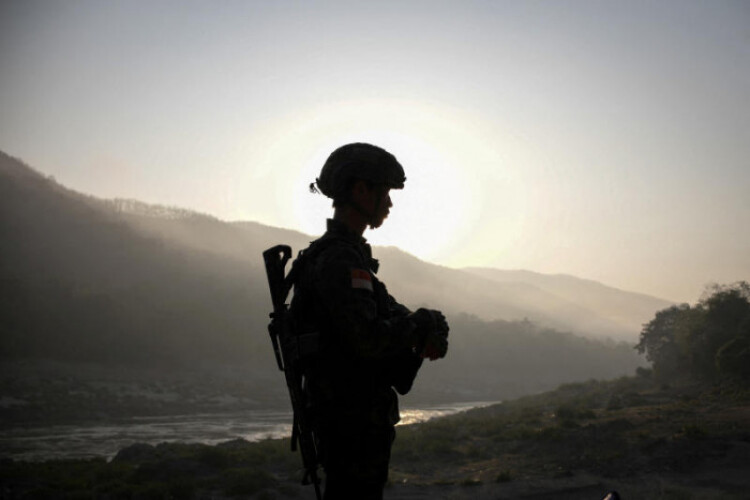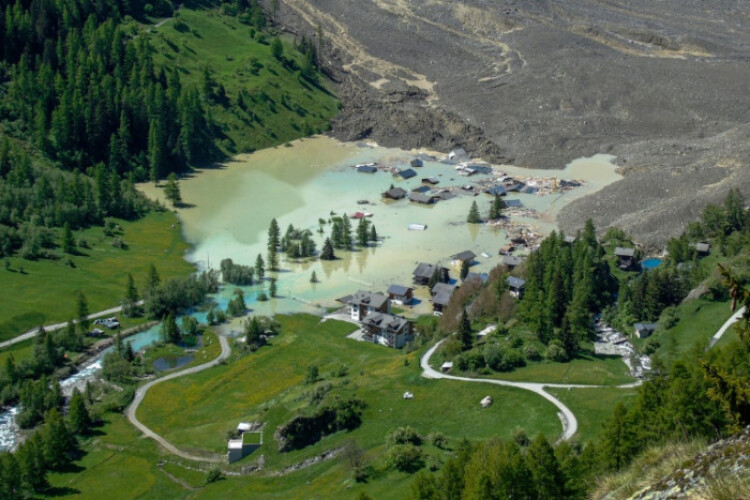
SINGAPORE - Myanmar’s junta is on the verge of being expelled from a western-most state bordering Bangladesh, according to a new report, marking the one of the biggest military losses since a 2021 coup led to renewed civilian conflict across the country.
The Arakan Army has made rapid advances across Rakhine state since November last year and is set to create the single largest area controlled by an ethnic armed group since the coup, the International Crisis Group said in a report on Tuesday.
Formed in the borderlands of China, the armed group is responsible for some of the military junta’s most decisive battleground losses over the past year. Their victories are rallying other ethnic armed groups and pro-democracy fighters to dislodge military regime led by coup leader-turned-President Min Aung Hlaing.
"The Arakan Army is in the process of carving out a proto-state of over a million people on the Myanmar-Bangladesh border," International Crisis Group said in the report. "Although the Myanmar military has countered with indiscriminate attacks and a blockade that is causing huge economic distress, the armed group" has pushed on.
Other reports show the military has lost control over most of the nation's townships, and last month it extended emergency rule again as the security situation deteriorates. Compounding those problems is a worsening economic picture with 76% of the population living below or perilously close to a subsistence existence, the United Nations Development Programme (UNDP) said in April.
The Arakan Army has achieved key victories along Rakhine’s coast, and it is now poised to attack Sittwe, the state capital. A key target is the island township of Kyaukphyu, which hosts critical Chinese infrastructure projects.
Rakhine is also home to Myanmar's vulnerable Rohingya population. This month marks seven years since the start of military operations that drove some 700,000 people across the border into Bangladesh, events that the United States later determined had amounted to "genocide and crimes against humanity."
Rohingya refugees shout slogans as they gather to mark the seventh anniversary of their fleeing from neighbouring Myanmar to escape a military crackdown in 2017, during heavy monsoon rains in Cox's Bazar, Bangladesh, on Aug 25, 2024. (Photo: Reuters)
Violence against the Muslim-minority group has continued. Volker Turk, the United Nations (UN) human rights chief, expressed "grave alarm" last week about the sharply deteriorating situation in Rakhine State where hundreds of civilians have reportedly been killed as they flee the fighting.
According to information documented by the UN Human Rights Office, both the military and the Arakan Army have committed serious human rights violations and abuses against the Rohingya, including extra-judicial killings, some involving beheadings, abductions and forced recruitment.
Whether the Arakan Army can leverage economic resources in Rakhine after the junta is gone however remains a significant challenge, said Thomas Kean, Crisis Group's senior consultant on Myanmar and Bangladesh. While it does not have visible infrastructure with neighbouring countries, China has long planned to build a deep-sea port, a special economic zone and a high-speed railway in Kyaukphyu.
"The rise of the Arakan Army in western Myanmar is certainly a challenge for China, primarily because of Beijing's economic and strategic interests in the region," he said. “China wants to ensure there is no disruption or damage to its investments."
The Arakan Army has made rapid advances across Rakhine state since November last year and is set to create the single largest area controlled by an ethnic armed group since the coup, the International Crisis Group said in a report on Tuesday.
Formed in the borderlands of China, the armed group is responsible for some of the military junta’s most decisive battleground losses over the past year. Their victories are rallying other ethnic armed groups and pro-democracy fighters to dislodge military regime led by coup leader-turned-President Min Aung Hlaing.
"The Arakan Army is in the process of carving out a proto-state of over a million people on the Myanmar-Bangladesh border," International Crisis Group said in the report. "Although the Myanmar military has countered with indiscriminate attacks and a blockade that is causing huge economic distress, the armed group" has pushed on.
Other reports show the military has lost control over most of the nation's townships, and last month it extended emergency rule again as the security situation deteriorates. Compounding those problems is a worsening economic picture with 76% of the population living below or perilously close to a subsistence existence, the United Nations Development Programme (UNDP) said in April.
The Arakan Army has achieved key victories along Rakhine’s coast, and it is now poised to attack Sittwe, the state capital. A key target is the island township of Kyaukphyu, which hosts critical Chinese infrastructure projects.
Rakhine is also home to Myanmar's vulnerable Rohingya population. This month marks seven years since the start of military operations that drove some 700,000 people across the border into Bangladesh, events that the United States later determined had amounted to "genocide and crimes against humanity."
Rohingya refugees shout slogans as they gather to mark the seventh anniversary of their fleeing from neighbouring Myanmar to escape a military crackdown in 2017, during heavy monsoon rains in Cox's Bazar, Bangladesh, on Aug 25, 2024. (Photo: Reuters)
Violence against the Muslim-minority group has continued. Volker Turk, the United Nations (UN) human rights chief, expressed "grave alarm" last week about the sharply deteriorating situation in Rakhine State where hundreds of civilians have reportedly been killed as they flee the fighting.
According to information documented by the UN Human Rights Office, both the military and the Arakan Army have committed serious human rights violations and abuses against the Rohingya, including extra-judicial killings, some involving beheadings, abductions and forced recruitment.
Whether the Arakan Army can leverage economic resources in Rakhine after the junta is gone however remains a significant challenge, said Thomas Kean, Crisis Group's senior consultant on Myanmar and Bangladesh. While it does not have visible infrastructure with neighbouring countries, China has long planned to build a deep-sea port, a special economic zone and a high-speed railway in Kyaukphyu.
"The rise of the Arakan Army in western Myanmar is certainly a challenge for China, primarily because of Beijing's economic and strategic interests in the region," he said. “China wants to ensure there is no disruption or damage to its investments."










